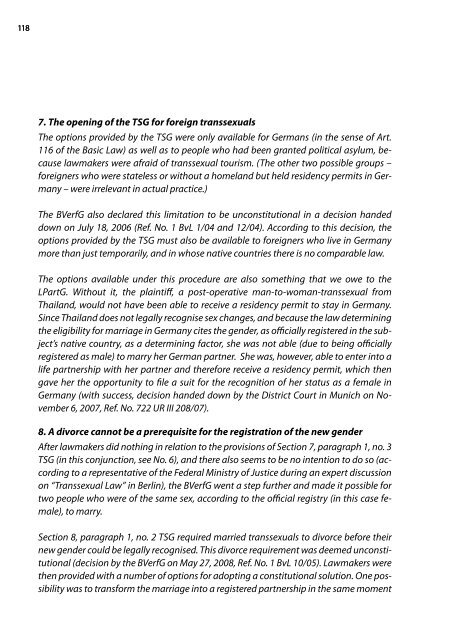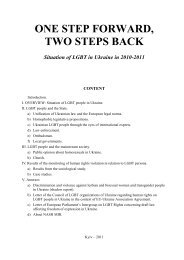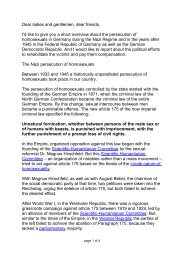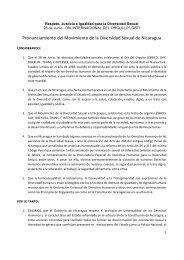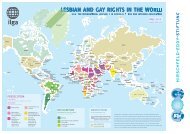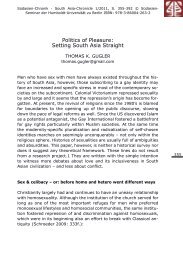Vom Verbot zur Gleichberechtigung - Hirschfeld-Eddy-Stiftung
Vom Verbot zur Gleichberechtigung - Hirschfeld-Eddy-Stiftung
Vom Verbot zur Gleichberechtigung - Hirschfeld-Eddy-Stiftung
Sie wollen auch ein ePaper? Erhöhen Sie die Reichweite Ihrer Titel.
YUMPU macht aus Druck-PDFs automatisch weboptimierte ePaper, die Google liebt.
118<br />
7. The opening of the TSG for foreign transsexuals<br />
The options provided by the TSG were only available for Germans (in the sense of Art.<br />
116 of the Basic Law) as well as to people who had been granted political asylum, because<br />
lawmakers were afraid of transsexual tourism. (The other two possible groups –<br />
foreigners who were stateless or without a homeland but held residency permits in Germany<br />
– were irrelevant in actual practice.)<br />
The BVerfG also declared this limitation to be unconstitutional in a decision handed<br />
down on July 18, 2006 (Ref. No. 1 BvL 1/04 and 12/04). According to this decision, the<br />
options provided by the TSG must also be available to foreigners who live in Germany<br />
more than just temporarily, and in whose native countries there is no comparable law.<br />
The options available under this procedure are also something that we owe to the<br />
LPartG. Without it, the plaintiff, a post-operative man-to-woman-transsexual from<br />
Thailand, would not have been able to receive a residency permit to stay in Germany.<br />
Since Thailand does not legally recognise sex changes, and because the law determining<br />
the eligibility for marriage in Germany cites the gender, as officially registered in the subject’s<br />
native country, as a determining factor, she was not able (due to being officially<br />
registered as male) to marry her German partner. She was, however, able to enter into a<br />
life partnership with her partner and therefore receive a residency permit, which then<br />
gave her the opportunity to file a suit for the recognition of her status as a female in<br />
Germany (with success, decision handed down by the District Court in Munich on November<br />
6, 2007, Ref. No. 722 UR III 208/07).<br />
8. A divorce cannot be a prerequisite for the registration of the new gender<br />
After lawmakers did nothing in relation to the provisions of Section 7, paragraph 1, no. 3<br />
TSG (in this conjunction, see No. 6), and there also seems to be no intention to do so (according<br />
to a representative of the Federal Ministry of Justice during an expert discussion<br />
on “Transsexual Law” in Berlin), the BVerfG went a step further and made it possible for<br />
two people who were of the same sex, according to the official registry (in this case female),<br />
to marry.<br />
Section 8, paragraph 1, no. 2 TSG required married transsexuals to divorce before their<br />
new gender could be legally recognised. This divorce requirement was deemed unconstitutional<br />
(decision by the BVerfG on May 27, 2008, Ref. No. 1 BvL 10/05). Lawmakers were<br />
then provided with a number of options for adopting a constitutional solution. One possibility<br />
was to transform the marriage into a registered partnership in the same moment


